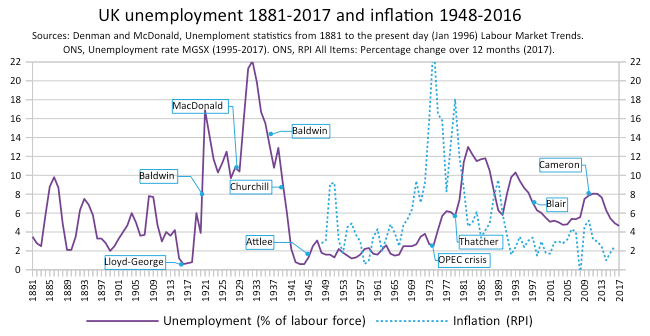ks.234
Half way to Infinity
Unemployment in this sense explicitly means involuntary unemployment, and what is counted and what is not counted is as much a political decision then as now. Obviously no one is talking in absolute terms but about politics and policies whose motives are directed towards full employment, or away from it.Anyone expecting full employment is deluded, before or after any Wall Street Crash. There will always be people who choose not to work or can't work because of childcare, care for the elderly, those recovering from illness or still ill, those taking early retirement, of private means or any variety of reasons. How many women aged 16-65 worked at the time of the WSC? Few. How many of childbearing age? Fewer still. The causes of people being economically inactive are manifold and defy any simple one-size-fits-all solution.
Not sure what a one size fit all solution is, but we had much lower unemployment after WW2

Investment in a job guarantee that provides a job for everyone who wants one on a decent wage with holiday pay and pension entitlements would go a long way to creating a more stable economy that is more capable of supporting those who cannot work due to disability and care commitments etc.
